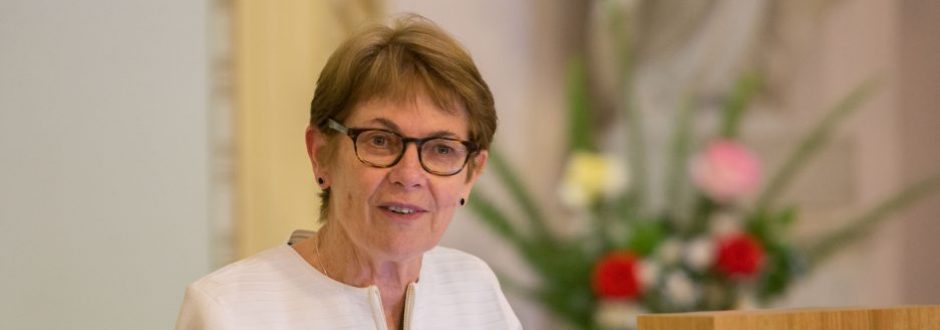Christmas, the feast of the Incarnation, the feast which celebrates the Messiah coming into our messy word, is also a feast celebrating me and my humanity, writes Patty Fawkner.
A friend once told me that the best Christmas card she ever received had three words on it:
Me
Mess
Messiah
It occurred to me that these three words offer a succinct theology, a pathway into the wonder and the mystery of Christmas.
Messiah
The Advent liturgy is characterised by yearning for the Messiah: Come, Lord, come. Come and save your people. Do not delay. Console your people, console them. Let us see your face and we shall be saved. Show us your mercy and love and grant us your salvation. How much longer must we wait?
Palpable ardent longing.
The prophets and poets of ancient Israel waited for the Messiah who would rescue the chosen people from pain and the suffering caused by injustice and oppression. This Messiah, this Anointed One, would right all that was wrong with the world. This Messiah would be a strongman, a kind of superstar. He would be invincible and powerful like a warrior king.
We, too, wait for justice and peace to be realised in our world.
We wait for peace for the people of Ukraine. We yearn for justice for the women of Afghanistan and for release for those who are trafficked into sexual slavery. We hope that food and water will be provided for the children of Somalia who are dying from starvation. We await recompense for those inundated by flood once, twice, even three times in a year.
Mess
There is a saying in Jewish apocalyptic literature which proclaims that “Every tear brings the Messiah closer!” If this is the case, surely the Messiah must be very close!
And so the Messiah is. Our Christian faith teaches that instead of an all-conquering hero, our Messiah comes in the form of vulnerability, utter dependence and helplessness. Our Messiah comes as a new-born baby.
Instead of standing apart from the mess of human suffering, the Messiah, Jesus of Nazareth, enters the mess of human suffering.
He is born into mess, in an animal feeding trough. While still a babe he will seek asylum from a murderous King Herod and become a refugee. He will get lost as a child, and as an adult will live the simple life of a homeless itinerant teacher. He will be betrayed, condemned by the mob, mocked and tortured. Instead of ascending a throne he will mount a cross and suffer an ignominious death.
He is a Messiah who knows first-hand abandonment, failure, and misunderstanding. He becomes the scapegoat, the sacrificial lamb of others’ politically motivated ambitions. He is like us in all things, the Letter to the Hebrews reminds us. Like us in all things but sin.
Me
What about me? Asking this question reminds me of the little girl who wakes up in the night frightened by the dark, the abode of ghosts and monsters. She runs into her parents who assure her it’s safe to return to her room for God will be there looking after her. Unconvinced, she protests, “But I want someone with skin on!”
This is the miracle we celebrate at Christmas; God has become someone like me, “someone with skin on”. And I, in my humanity, have become like God.
God became human, so that humanity might become God, said St Athanasius in the 4th Century.
In one of the most famous mystical experiences ever recorded, Thomas Merton wrote of an experience on the corner of Fourth and Walnut Streets in downtown Louisville, Kentucky. March 18 in 1958 was a moment when Merton understood more fully the meaning of Christmas. What “a glorious destiny (it is) to be a member of the human race,” he exclaims, “though it is a race dedicated to many absurdities and one which makes many terrible mistakes.” Despite humanity’s constant failure, cruelty and ever-present shadow, God “gloried in becoming a member of the human race. A member of the human race!”
Because of Christmas, because of the Incarnation, we “are all walking around like the sun” without realising it, Merton declares. This is because of, not despite, our humanity.
It is easy to eschew our humanity and create a false dichotomy between the material and the spiritual, between heaven and earth, between the human and the divine. In Jesus, the Christ, the Anointed One, the baby lying in a manger, our dichotomous thinking collapses. Because of Christmas, our humanity and divinity are completely entwined.
Christmas, the feast of the Incarnation, the feast which celebrates the Messiah coming into our messy world, is also a feast celebrating me and my humanity. The birth of Jesus is fully about what it means to be human. Happy Christmas. You and I and all humanity, take a bow.
